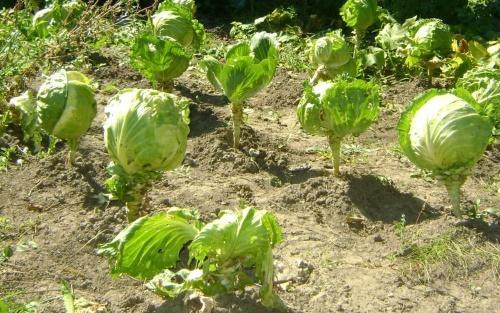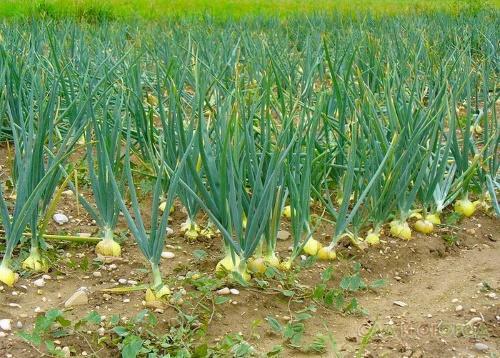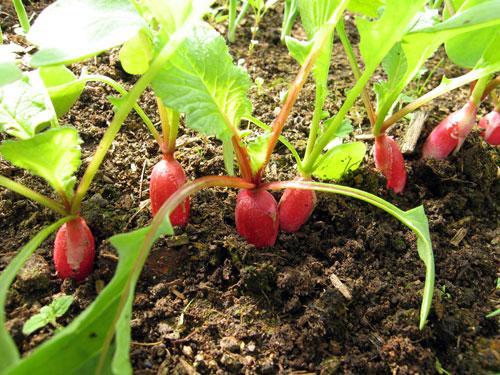What can and cannot be grown after cabbage for the next year
 All garden crops require fertile soil, but cabbage is in the lead. In order to grow a large and strong head of cabbage, she selects a large amount of organic matter and minerals from the soil. In addition, the root system of the plant is very powerful: the main root can go deeper into the soil by more than 40 cm, and the lateral roots do not lag behind and grow far along the sides. It is not for nothing that pulling out cabbage with roots is not an easy task and you either have to dig up the stumps, or wait until they freeze and become limp.
All garden crops require fertile soil, but cabbage is in the lead. In order to grow a large and strong head of cabbage, she selects a large amount of organic matter and minerals from the soil. In addition, the root system of the plant is very powerful: the main root can go deeper into the soil by more than 40 cm, and the lateral roots do not lag behind and grow far along the sides. It is not for nothing that pulling out cabbage with roots is not an easy task and you either have to dig up the stumps, or wait until they freeze and become limp.
So it turns out that after harvesting the cabbage bed remains depleted to a decent depth and not all crops will be able to provide nutrients in the next season. Do not forget about the various pests and diseasesstriking this vegetable popular in summer cottages. Having remained in the soil and overwintered, the larvae and various "harmful" bacteria attack new plants with renewed vigor, so it is necessary to be very responsible in their choice, determining what to plant after the cabbage for the next year.
First of all, you need to choose crops that do not belong to the cruciferous (or cabbage) family. This means that they are not susceptible to diseases common among these plants.
What can you plant?
Best of all, after cabbage, especially after early varieties of white cabbage and cauliflower, the following vegetables grow:
- beet;
- tomatoes;
- cucumbers;
- bow;
- carrot;
- garlic;
- eggplant.
What cannot be planted?
After cabbage, you can not plant those plants that love cabbage pests, namely:
- turnips;
- rutabagas;
- radish.
Otherwise, instead of just caring for the plantings, there will be a fierce fight against pests, which will not only manage with might and main in their usual place, but also actively expand their territory.
Where to plant cabbage?
All legumes and root crops are the precursors for cabbage. In addition, it grows well after grains and cucumbers.
The cabbage itself can be planted in its old place only after three years, provided that during this time the site was fertilized and cruciferous plants were not grown there.